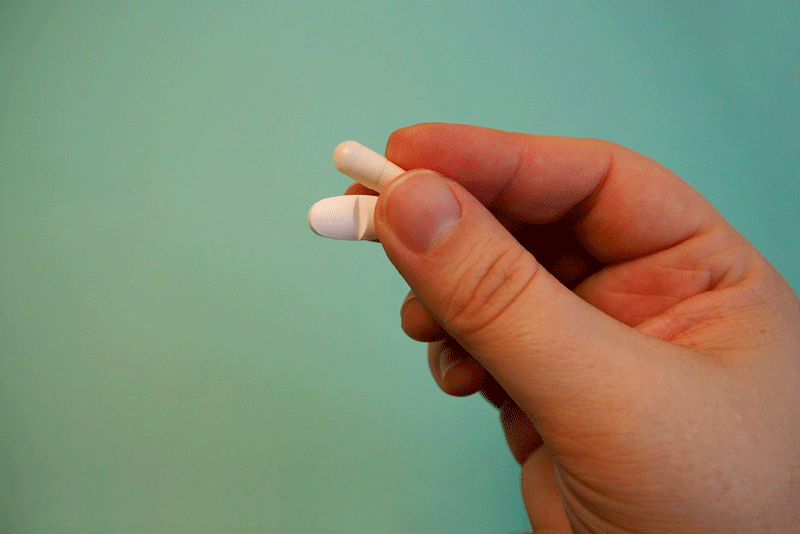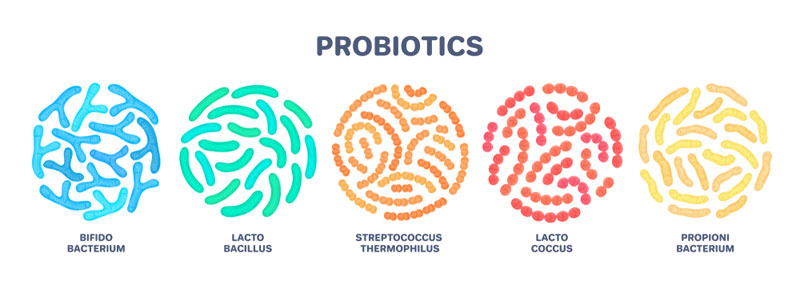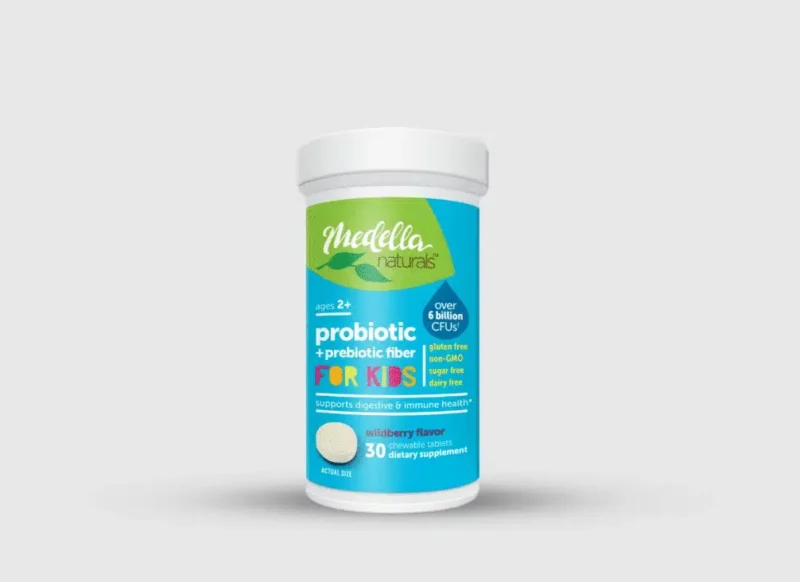Kids and adult probiotics aren’t the same, despite both being beneficial for gut health. The reason lies in the distinct nutritional needs of children and adults, wherein children’s probiotics cater to their developing immune and digestive systems. In contrast, adult ones aim at maintaining overall well-being. Interestingly, the dosages also differ as children’s bodies are still growing; hence, they may benefit from smaller but more frequent doses than adults.
Kids’ probiotics are specifically formulated with lower dosages to suit the developing digestive systems of children. In contrast, adult probiotics have higher bacterial counts to cater to the needs of mature gut flora. Choosing products tailored to the appropriate age group for optimal effectiveness is crucial when selecting probiotics. Now, as we ponder age-specific nutrition, let’s delve deeper into the particularities of probiotic selection.
What Are Probiotics?

At their core, probiotics are live microorganisms that offer health benefits when consumed in adequate amounts. These beneficial bacteria and yeasts are found in various foods and supplements and are primarily known for their positive impacts on gut health. The human gut hosts a complex community of microorganisms, which plays a pivotal role in digestion, immune function, and mental health. By contributing to this microbial balance, probiotics can help maintain the gut’s integrity, combat harmful bacteria, and facilitate the production of essential vitamins and nutrients.
Differences Between Kids and Adult Probiotics
Regarding probiotics, age matters; the strains used in kids’ probiotics are carefully selected to align with children’s nutritional and developmental needs, while adult probiotics are tailored to support the digestive and immune health of grown individuals. Let’s take a closer look at the specific differences.
Strain Composition
Probiotics for kids contain strains like Bifidobacterium infantis, known to support a child’s developing digestive and immune systems. In contrast, adult probiotics often contain strains such as Bifidobacterium bifidum and Lactobacillus GG, catering to mature digestive systems’ unique needs.
Since children have developing bodies and immune systems, their probiotics require carefully selected strains that can help strengthen their immunity and promote healthy digestion. In contrast, adult probiotics focus on supporting gut health and immune function in fully developed bodies.
Specific Health Needs
Probiotics are essential for kids to support growth and development and help with common childhood conditions like diarrhea and allergies. Adult probiotics, meanwhile, may target age-related health issues, including gastrointestinal health, metabolic support, and mental wellness.
Dosage Considerations
Children’s probiotics are formulated with lower dosages in adherence to pediatric healthcare guidelines, taking into consideration the weight and age of the child. This ensures that children receive appropriate beneficial bacteria suitable for their growing bodies without overwhelming their developing digestive systems. For instance, Medella Probiotics offers kids’ Chewable probiotics with milder potency to suit young bodies.
This contrasts with adult probiotics, which typically come in capsule or tablet form with higher potency to accommodate the mature digestive systems of adults. Medella offers womens probiotic + cranberry, Multi-strain probiotic, and Mega stain probiotic + prebiotic.
Probiotic Dosage Recommendation For Kids And Adults
Probiotic dosage recommendations vary widely based on the specific strain, product formulation, and individual health needs. It’s essential to consult your doctor for personalized advice on how much probiotics you should take. However, Id help you understand typical dosages for kids and adults.
Probiotic Dosage Recommendations for Kids

- Infants and Toddlers (0-2 years): Dosages can range from 1 billion to 3 billion Colony Forming Units (CFUs) daily. Some products are specifically designed for this age group.
- Children (3-12 years): A common dosage is between 5 billion and 10 billion CFUs daily. The exact amount can depend on the child’s health needs and the probiotic strains.
- Teens (13-17 years): Dosages similar to adults can be appropriate, typically starting at the lower end of adult dosages, such as 10 billion to 15 billion CFUs daily.
Probiotic Dosage Recommendations for Adults

- General Health Maintenance: Dosages typically range from 10 billion to 20 billion CFUs daily to support general digestive health and immune function.
- Specific Health Conditions: For addressing particular issues like IBS, higher dosages ranging from 20 billion to 50 billion CFUs per day may be recommended based on clinical evidence supporting specific strains and their efficacy.
- High-Dose Probiotics: In certain scenarios, such as following a course of antibiotics or treating severe digestive disorders, dosages can go as high as 100 billion CFUs per day under medical supervision.
Additional Considerations
- Strain-Specific Recommendations: Some probiotic strains may be effective at lower dosages, while others might require higher amounts to confer benefits. It’s important to look at the specific strains of a probiotic supplement and their associated research.
- Formulation: The form of the probiotic (e.g., capsule, powder, liquid) can affect its viability and efficacy. Some formulations may be designed to withstand stomach acid better, enhancing the delivery of live bacteria to the gut.
- Frequency: Most probiotics are taken daily to maintain efficacy, but the frequency can vary based on the product and health goals.
Probiotic Benefits for Kids

- Support Digestive Health: Probiotics can help maintain a healthy balance of gut bacteria, crucial for effective digestion and nutrient absorption in children.
- Reduce Diarrhea Incidence: They are effective in reducing the duration and severity of acute diarrhea, as well as preventing antibiotic-associated diarrhea.
- Boost Immune Function: Regular intake of probiotics can strengthen the immune system, potentially reducing the frequency and severity of respiratory infections and the need for antibiotics in children.
- Alleviate Allergy Symptoms: Certain strains of probiotics may help reduce the symptoms of eczema and other allergies in children, leading to improved skin health.
- Aid in Managing Constipation: Probiotics can help regulate bowel movements, relieving constipation in children.
- Support Oral Health: Some probiotics can help prevent cavities and oral infections in children by balancing the microbiome in the mouth.
Probiotic Benefits for Adults

- Enhance Digestive Function: Probiotics help manage digestive disorders such as irritable bowel syndrome (IBS), and inflammatory bowel disease (IBD), and resolve constipation, improving overall digestive health.
- Support Immune System: By maintaining a healthy gut microbiome, probiotics can enhance the body’s immune response, helping to fight off infections more efficiently.
- Mental Health Benefits: Emerging research suggests a gut-brain connection where probiotics may play a role in reducing symptoms of anxiety, depression, and stress.
- Heart Health: Some probiotic strains can positively affect heart health by lowering LDL (bad) cholesterol levels and blood pressure.
- Weight Management: Probiotics may influence weight and fat storage by affecting appetite and energy usage, helping manage body weight.
- Improve Skin Health: For adults, probiotics can also contribute to healthier skin by potentially reducing the severity of conditions like acne and rosacea.
- Enhance Nutrient Absorption: Regular consumption of probiotics can improve the body’s ability to absorb essential nutrients, vitamins, and minerals from food.
- Reduce Inflammation: Probiotics can help reduce systemic inflammation, a root cause of many chronic diseases.
Safety and Side Effects of Probiotics
Potential Risks for Kids: Probiotics are typically safe if taken within recommended amounts. However, caution is advised for kids with weakened immune systems or serious health conditions. On rare occasions, probiotics could lead to infections in susceptible children. Consulting a healthcare professional before starting probiotics is essential.
Side Effects in Adults: Probiotics are generally well-tolerated by adults, with few experiencing mild digestive discomfort like bloating or gas initially. These side effects often diminish as the body adapts to the new bacterial balance.
Conclusion
Understanding the differences between kids and adult probiotics is key to maximizing their health benefits. While both can offer significant advantages for digestive and immune health, the specific needs of children and adults necessitate different formulations, strains, and dosages. By choosing the right probiotic and consulting with healthcare professionals, individuals can support their health and well-being at every stage of life.

